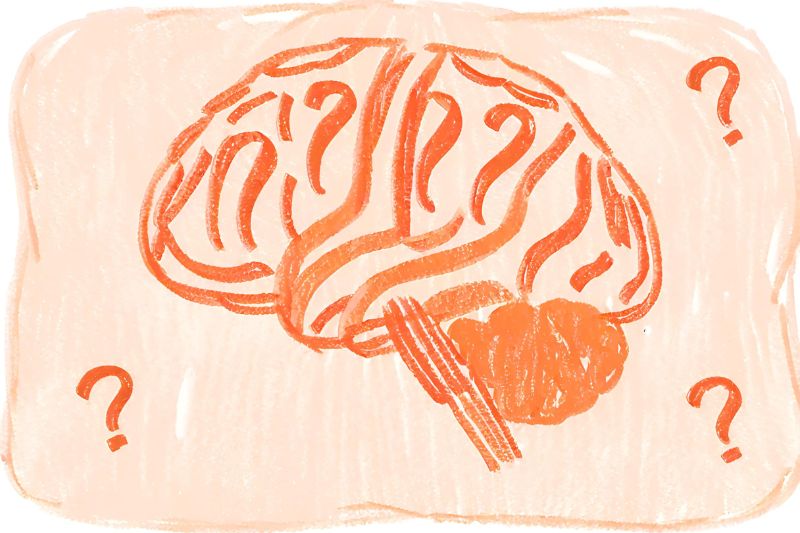Why Do Certain People Give Me Anxiety?
Anxiety can be triggered not only by situations but certain types of people. Find out why this happens and how you can manage your symptoms with ManageMinds.

If you suffer from anxiety, you’ll find that it can be triggered by a swath of situations ranging from a dreaded work presentation to an embarrassing memory. You might even experience heightened anxiety in the presence of certain people.
We’re going to explore the main types of people that can cause you to feel anxious and explain why it happens. We’ll also offer up some tips on how you can reduce your anxiety when dealing with these people.
Table of contents
- What is anxiety?
- Types of people who give you anxiety
- Why do certain people give me anxiety?
- How to stop being so anxious around certain people
What is anxiety?
Before we jump into the types of people who can give you anxiety, let’s quickly cover what anxiety is. According to the NHS, anxiety is a “feeling of unease, such as worry or fear, that can be mild or severe”. It is the main symptom of several conditions, including:
- Generalised anxiety disorder (GAD)
- Obsessive-compulsive disorder (OCD)
- Panic disorder
- Phobias
- Post-traumatic stress disorder (PTSD)
- Social anxiety disorder
Anxiety can present differently in individuals and can cause a range of physical, emotional and psychological symptoms, including:
- Heart palpitations
- Sweating
- Trembling
- Tiredness
- Dizziness
- Muscle aches and tension
- Insomnia
- Restlessness
- Irritability
- Gastrointestinal issues
- Feeling nervous
- An impending sense of doom
- Intense worry
A variety of things can trigger these symptoms, including people you interact with. Let’s take a look at what types of people this might involve.
Types of people who can give you anxiety

1. People who trivialise your anxiety
Living with anxiety can be difficult enough without dealing with people trivialising your condition. Whether they are well-intentioned or just plain ignorant, no one with anxiety wants to hear statements like:
- “It’s not that big of a deal.”
- “Everyone goes through that.”
- “There’s no use being upset.”
When someone (knowingly or unknowingly) invalidates your thoughts and feelings, it can make you reluctant to spend time with them. If they’re too close-minded to try and understand your situation, you’re never going to feel entirely comfortable in their presence.
2. Confident people
If you struggle to make conversation or have a tendency to overthink everything, confident people can be very intimidating to be around. While they breeze through social interactions without breaking a sweat, you’re busy worrying about saying something stupid or looking overly flustered.
When you start to compare yourself to people who don’t seem to have a care in the world, it’s easy to fall into the trap of fixating on your insecurities and perceived inadequacies and going out of your way to avoid them altogether.
3. People who pressure you
No one likes to be pressured into doing something they’re not comfortable with. This is especially true for people with anxiety who are reluctant to do things outside of their comfort zone, such as:
- Socialising with strangers
- Going out spontaneously
- Dating
- Trying new things
When you have a friend who keeps pushing you to do something, even after you’ve made your reluctance clear, it can put you in an uncomfortable position. If you say no, you might feel like you’re being a bad friend or that they won’t like you anymore. If you say yes, you’re prioritising their feelings over your wellbeing.
When you start associating certain people with this type of behaviour, it’s unsurprisingly easy to develop a sense of anxiety whenever you’re around them.
4. People in positions of power
It’s easy to feel intimidated or self-conscious around people who are in positions of power, e.g., managers, teachers, police etc. When you lack confidence or fear judgement, distinct power imbalances can make you feel like you might say the wrong thing and get into trouble.
The idea that you need to be on your best behaviour at all times with these figures of authority, whilst ignoring your true authentic self, can be emotionally taxing and anxiety-inducing.
5. People who dump all of their problems on you
Everyone loves to whinge and moan about their woes with their close friends. It’s a great way to unwind and unburden yourself of your problems. But what happens when this becomes a one-way street?
When all you’re doing is listening to someone’s daily problems and churning out advice that they don’t listen to (without them reciprocating in kind), it can take a heavy toll on your mental health. Adding endless negativity to your anxiety will only make you feel worse.
6. Attractive people
Many people get a little tongue-tied and nervous when interacting with attractive people—it’s quite a distracting predicament to be in! When you have anxiety, however, it’s slightly more challenging.
Low self-esteem and a lack of confidence can put a lot of pressure on you to act “normal” or perfect around people who you perceive to be superior in some way. If you’re scared of being judged, you might even find yourself second-guessing everything you say, do, or even wear in the presence of these types of people.
7. Intelligent people
When you’re dealing with someone you believe is intellectually superior to you, it’s easy to feel self-conscious. With your insecurities and intrusive thoughts running amok, it can seem like they’re putting all of your comments under a microscope—silently judging every incorrect thing you say.
8. People who are anxious
Some people with anxiety thrive in the presence of others with the same condition. It can be a relief to know that you’re surrounded by people with shared experiences and similar concerns. Others, however, find that the opposite is true.
When other people are nervous or worried about something, it can trigger your anxiety—even if you know that nothing is wrong. Additionally, if you’re already self-conscious about your anxiety, being around other anxious individuals can make it seem like you’re the centre of attention wherever you go.
Why do certain people give me anxiety?
So, we know what types of people can give us anxiety, but why exactly is this the case? It all boils down to two main reasons.
You’re letting your insecurities influence the way you think about people
Anxiety can have a devastating effect on how we view ourselves and, consequently, how we believe other people perceive us.
- Low self-esteem and confidence make it difficult to believe that people want to spend time with you.
- Fear of judgement, uncertainty and overthinking make it impossible to feel comfortable in social interactions.
When we convince ourselves that we’re unlikeable, awkward or [insert any negative adjective], it’s easy to project this negative perception onto other people, despite it being completely untrue.
You’re dealing with people who don’t respect your boundaries or anxiety
The cause of your anxiety might not rest entirely at your feet. You might simply be interacting with people who aren’t mindful of your boundaries or mental health—instead prioritising their own happiness over your wellbeing.
Now, this isn’t always intentional. Some people are ignorant about what it’s like to experience anxiety and assume that you’re exaggerating your symptoms. Others might even be under the misguided assumption that they’re helping you by nudging you out of your comfort zone.
How to stop being so anxious around certain people

Though you could try to avoid the people who give you anxiety, it will not help you in the long run. Avoidance strategies will only prolong or intensify your discomfort. You need to take action for something to change.
Examine your thoughts
Why exactly are you feeling anxious in this person’s presence? Have they said something rude or judgemental? Are you simply intimidated by their confidence, intelligence or attractiveness?
Once you determine what it is that’s driving you to feel anxious, you can figure out whether the issue is on your end or the other person’s.
Challenge yourself
If you’re convinced that someone doesn’t like you or is silently judging you, you need to ask yourself:
- Do I have any evidence to support my claim?
- Am I basing this assumption on an unrelated past experience?
- Has this person said or done anything to counter my fears?
Though it will take time, getting into the habit of challenging your insecurities and worst fears will help you feel less self-conscious around people. Eventually, you’ll start to feel much more comfortable and confident around people who previously made your anxiety worse.
Socialise more
Another way to reduce the intensity and frequency of your anxiety around certain people is to spend more time with them. It sounds counter-productive, but it’s a technique used in exposure therapy. The more accustomed you become to the source of your anxiety, like attractive or confident people, the less intimidated you will be.
Be open and set boundaries
You should never let someone else dictate what you do to the detriment of your mental health and wellbeing. If you’re not comfortable with something, you need to speak up.
For example, if your social battery is at an all-time low, but a friend is bugging you to go out with them, let them know that you’re not up for it. Make it clear that it isn’t because you don’t want to spend time with them, but rather that it’s better for your wellbeing if you have some alone time.
You might find that the other person is entirely unaware of how much they’ve overstepped with you. By being honest with them, you can help them to improve their behaviour with you and other people they interact with.
It might feel awkward initially, but healthy boundaries are the cornerstone of every strong relationship.
Prioritise yourself
Sometimes it’s simply not enough to set boundaries and have a heart-to-heart. Some people are incapable of change. If you’ve concluded that someone isn’t good for you and your mental health, it might be time to cut them out of your life.
Ending a relationship is never easy, but keeping toxic and disrespectful people around you will only weigh you down and worsen your anxiety.
Try therapy
If you’ve not made any progress with reducing your anxiety around certain people, the most effective course of action is therapy. There is a wide range of therapy types available that can help you uncover the root cause of your anxiety and teach you coping strategies to manage your symptoms.
Not sure where to start? ManageMinds has done all of the heavy lifting for you! We’ve got a handpicked selection of therapists equipped with various therapeutic techniques and experience in treating people with anxiety. To get matched up with one, have a look at our therapy services.
Post Date:
Author: Bethany Hall
Explore More Articles
3 Mental Health Myths Your Therapist Is Sick of Hearing
It's great that more people are talking about mental health, but not everything you hear is necessarily true. Don't fall for these 3 mental health myths!
Feeling Worried? Challenge Anxious Thoughts with These Simple Questions
Stuck in a spiral of anxious thoughts? Use these 3 simple questions to challenge negative thinking and adopt a healthier mindset.
ManageMinds Explains... Narcissists
Even wondered if you or someone you know may be a narcissist? In this guide we cover what narcissistic personality disorder is, as well as the signs you need to watch out for.


